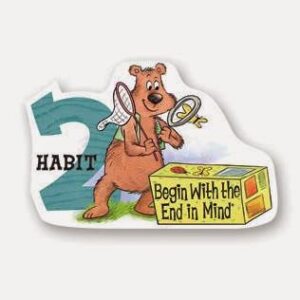The Means to an End
It is said that one of the 7 habits of highly effective people is to “Begin with the End in Mind.” That is a great sentiment if you are looking at work and wish to accomplish a certain goal. Each year in my teaching career, I would write a pre-opening day journal entry. It was entitled Goals, Expectations, and Anxieties. I wrote about what my objectives were for the year, what I hoped to accomplish, and what worried me about things I might have to address while trying to meet my expectations and goals.
Each year I filled up my journals with all the thoughts I had about teaching and my class, and each year as the year concluded I would re-read my journal for that year and see how well I accomplished what I set out to do. I also added some suggestions of things I might want to work on over the summer, prior to next year’s pre-opening day journal entry.
Now I’m retired and am no longer writing personal journals looking toward the end of anything specific I plan to do. However, I continue to write.
I do consider myself an effective writer. I think the things I write about are well written; at least I enjoy them. The difference for me from my school journal writing in these pieces of my writing is that I must start at the beginning in order to be more effective. In most cases, as I start to write, I have no idea where the end will be. For me, that makes me a more efficient writer. I take the spark that I have for the beginning and just write. Sometimes it’s memories, sometimes it’s fiction, there are times when it comes out poetically, and times when I editorialize. There are times when I start writing that I think I know where I want to go, and then go in a completely different direction. And each time I try, it works.
As many have said, my pieces seem to always have a beginning, a middle, and an end.
I still have a number of pieces that have yet to be completed, that I may have started in a group and though I finished that part for the group, the need for the overarching story continues. One of my end goals for those pieces is to complete them. Which I may or may not do. In those cases, the more I add to them, the closer I get to figuring out where I’m going. And yet, until I’m close to the end, I still don’t have the ends clearly defined.
So yes, to be highly effective in most cases it is important to have your end in mind. However, there are exceptions. And as I’m finishing this writing piece, I guess here is where I was trying to get to – At least until I begin the next one.

